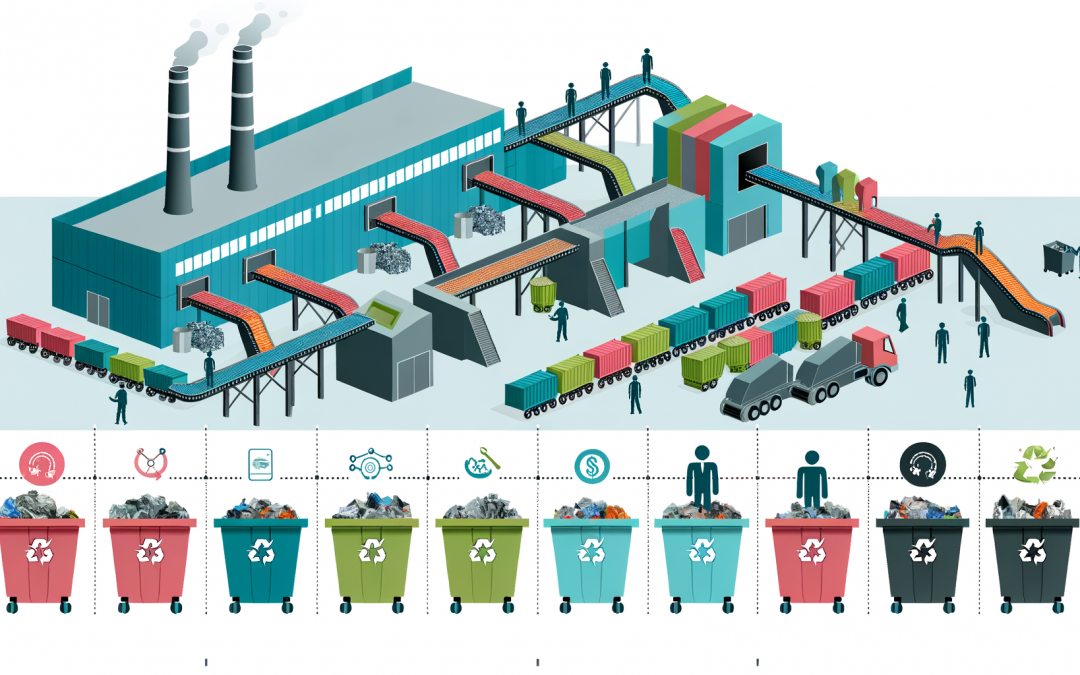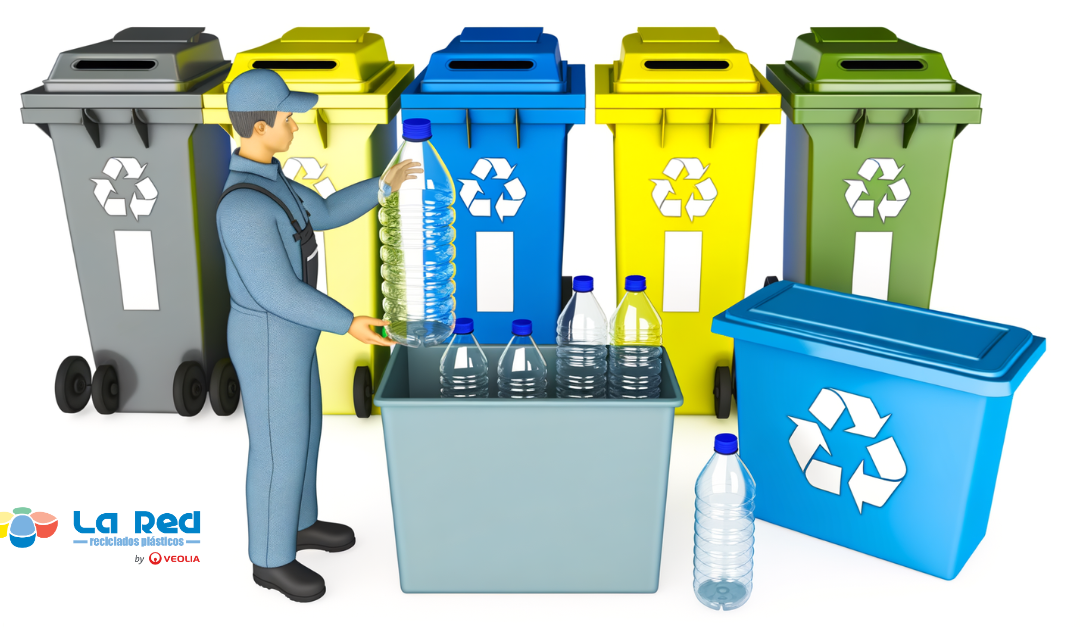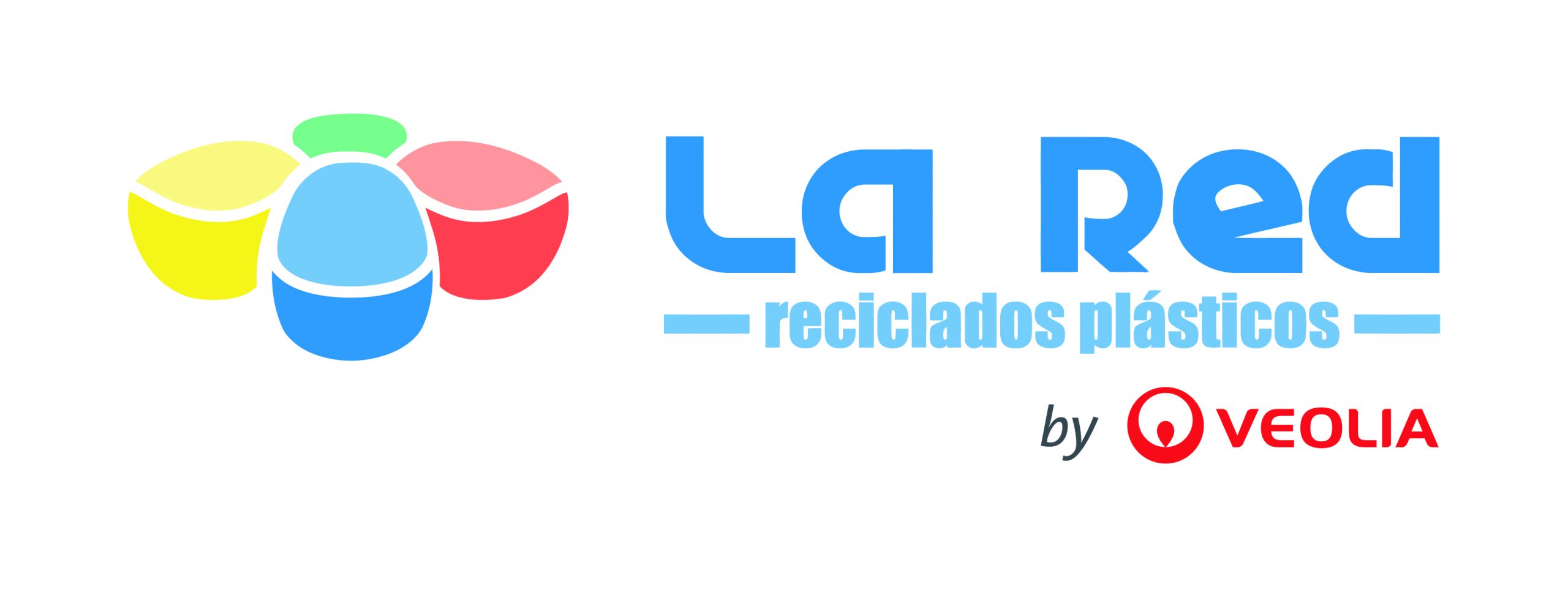
by webmasterMT | Mar 6, 2025 | Environment, Innovation, Sustainability
Efficient plastic waste management is crucial to mitigating climate change. At Reciclados La Red by Veolia, we have adopted advanced sorting to optimize recycling and reduce environmental impact. Visit our recycling process here.
What is Advanced Sorting?
Advanced classification is a process that separates plastics by polymer type. By separating plastics by polymer type, recycling quality is improved, as each type of plastic can be optimally processed for reuse in the manufacture of new products. This is crucial for obtaining high-quality recycled materials and for reducing the environmental impact of recycling, and CO₂ emissions.
Benefits of Advanced Sorting
- Recycled Material Quality: Allows for high-purity plastics, ideal for new products.
- Emission Reduction: Decreases climate impact by up to 27%.
- Circular Economy: Facilitates continuous reuse of materials.
Environmental and Economic Impact
A report by the Swedish Environmental Research Institute IVL highlights that advanced sorting significantly reduces greenhouse gas emissions.
Circular Economy and Sustainability
Advanced sorting not only reduces emissions but also promotes a circular economy model, decreasing dependence on virgin raw materials.
Implementation at Reciclados La Red by Veolia
In our company, we have integrated innovative technologies to improve the precision in plastic sorting, optimizing our processes and results.
Competitiveness and Regulatory Compliance
Adopting these technologies differentiates us in the market and ensures compliance with environmental regulations.
Advanced sorting is essential for mitigating climate change and promoting sustainability. At Reciclados La Red by Veolia, we are committed to a greener future.

by webmasterMT | Feb 12, 2025 | Circular Economy, Recycling
Innovation in Recycled Plastics: Driving the Circular Economy
The VII Edition of Plastics and Circular Economy, held in Valencia, brought together experts and industry professionals to discuss the future of plastics. This event, titled “Beyond Recycling,” highlighted the importance of innovation in recycled plastics as a driver of the circular economy.
Innovation in Ecodesign and Digitalization
European Ecodesign Regulation
The new European Sustainable Products Regulation was a central topic. This regulation not only focuses on energy efficiency but also sets requirements for ecodesign. Timoteo de la Fuente, from the Ministry of Industry and Tourism, emphasized the importance of these standards to improve product sustainability.
Digital Passport for Plastic Products
An innovative digital tool was presented that will collect data from the entire value chain of each product. This digital passport will allow consumers to make more sustainable purchasing decisions, with full implementation expected by 2030.
Reuse and Refill Strategies
Innovation in Reusable Packaging
The need to develop reusable packaging was another highlighted topic. Companies like Babaria and Sintac Recycling presented the EcosmartPack project, offering smart and reusable packaging for sectors such as food and cosmetics.
Waste Management Models
The Collective Extended Producer Responsibility System (SCRAP) was discussed as a strategy to incentivize recycling. Starting in 2025, producers will be responsible for the first market placement of their products, promoting design for reuse.
Circularity and Decarbonization
Reducing the Carbon Footprint
The circular economy offers opportunities to reduce CO₂ emissions. Experts like Antonio García, from València European Green Capital, shared initiatives to integrate recycled materials into new products, thus reducing the environmental footprint.
Innovative Industrial Applications
Innovative solutions were presented, such as using recycled material from wind turbine blades for 3D printing. These initiatives aim to integrate circularity into demanding sectors like the automotive industry.
New Sustainable Business Models
Turning Challenges into Opportunities
The circular economy presents an opportunity to create sustainable business models. Companies like Novamont and Repsol shared success stories in integrating circularity throughout the entire value chain.
Demonstrations and Poster Sessions
Tangible Innovation
During the event, real demonstrators of innovations in the circular economy were exhibited. From pencil holders made from fishing nets to olive oil containers made from olive waste, these demonstrations highlighted the potential of the circular economy.
The VII Edition of Plastics and Circular Economy in Valencia was a platform to exchange knowledge and present disruptive innovations. The event highlighted the importance of digitalization, reuse, and the integration of new business models.
Join us at Reciclados La Red by Veolia and be part of the change towards a more sustainable future. Discover how you can contribute to the circular economy by using our recycled plastic.

by webmasterMT | Feb 3, 2025 | Sin categoría
Companies can significantly improve their industrial waste separation processes by adopting a series of strategies as we list below, thus contributing to a cleaner environment and a more circular economy.
Improving industrial waste separation is crucial to increasing recycling efficiency and minimizing environmental impact. Here are some strategies that companies can implement:
1. Waste audits: Conduct regular audits to assess the types and quantities of waste generated. This helps to identify opportunities to improve separation and recycling of waste.
2. Employee training: Educate staff on the importance of proper waste separation and how to do it correctly. This can include specific training sessions and the inclusion of recycling practices in induction programs.
3. Implementation of internal sorting systems: Place clearly labeled containers for different types of waste in key production areas. Ensure that these containers are accessible to workers.
4. Separation technology: Use advanced technologies, such as automatic waste sorting systems, that use sensors and separation mechanisms to sort materials more efficiently.
5. Collaboration with waste management companies: Work with waste management experts to optimize recycling and separation practices. These companies can offer advice on how to improve processes and which materials can be recycled.
6. Source reduction: Implement strategies to reduce waste generation at the source, such as redesigning products or production processes to minimize waste.
7. Creation of corporate sustainability policies: Develop corporate policies that prioritize sustainability and proper waste management. This promotes an organizational culture committed to recycling and correct waste separation.
8. Continuous monitoring and review: Implement a monitoring system to follow progress in waste management and make adjustments as needed. Regularly review procedures to identify possible improvements.
9. Incentives for staff: Create incentive programs to motivate employees to actively participate in waste separation and recycling, such as bonuses for meeting certain goals or internal competitions.
10. Transparent communications: Keep all employees informed about goals, achievements, and changes in waste management strategies. Transparency can foster a sense of collective participation.
What are the economic benefits of implementing these industrial waste separation strategies?
Implementing effective industrial waste separation strategies can bring several economic benefits to companies. Here are some of them:
1. Reduction of waste management costs: By correctly sorting waste and maximizing recycling, disposal rates and costs associated with sending waste to landfills are reduced.
2. Sale of recyclable materials: Many correctly separated materials can have value in the recycling market. Companies can sell these materials to recyclers and generate an additional source of income.
3. Improved operational efficiency: The implementation of waste separation systems and processes can lead to more efficient use of materials, reducing waste and increasing overall operational efficiency.
4. Regulatory compliance and avoidance of fines: Complying with local, national, and international waste management regulations can avoid costly fines. In addition, being in compliance can improve the company’s reputation.
5. Resource optimization: By reducing material use and improving the recycling rate, resource use is optimized, which can result in less need to buy virgin raw materials.
6. Incentives and grants: In some cases, governments offer incentives or grants to companies that demonstrate sustainable waste management practices. These can include tax reductions or financial support.
7. Competitive advantage: Companies that implement sustainable practices often improve their corporate image. This can increase their appeal to customers, investors, and consumers, potentially increasing sales and fostering long-term business relationships.
8. Innovation and development of new products: Attention to waste management can encourage innovation in product design, which could open up new market opportunities or create more competitive and sustainable products.
9. Increase in employee morale and productivity: Creating a work environment that values and encourages sustainability can improve employee morale and productivity, which brings indirect economic benefits.
10. Preparation for future regulations: With the tightening of environmental regulations, being ahead in sustainability prepares companies for future regulatory changes, avoiding costs associated with a hurried adaptation.
Waste separation strategies not only help the environment, but they can also have a significant positive financial impact for companies that effectively implement them.

by webmasterMT | Jan 15, 2025 | Sin categoría
At Reciclados La Red by Veolia, sustainability and proper waste management have always been our priorities. With the entry into force of Royal Decree 1055/2022 on Packaging and Packaging Waste from January 1, Spain has taken a significant step towards improving recycling, especially in relation to plastic packaging.
One of the main novelties of this decree is the obligation for manufacturers of domestic packaging to clearly specify on their products the container in which they should be deposited for recycling. This labeling seeks to facilitate consumers’ correct separation of waste, something we consider essential to optimize the recycling process.
This regulatory change is not only a step towards more responsible waste management, but it also has a direct impact on our activity as plastic recyclers. By ensuring that more plastic containers end up in the appropriate bin, the efficiency of recycling is increased and the quality of the recycled plastic we obtain is improved. Ultimately, this allows us to offer our customers a purer and higher quality recycled product.
On the other hand, the decree excludes B2B (business to business) packaging from this labeling obligation. Although this could pose a challenge in the separation of industrial waste, it also represents an opportunity for companies in the sector to improve their own packaging classification and recycling systems.
At Reciclados La Red by Veolia, we see this decree as an opportunity to reinforce our sustainable practices and collaborate with our customers and suppliers to promote higher quality recycling throughout the production and consumption chain. We continue in our mission to not only provide innovative and effective solutions for the management and recycling of plastics, but also to contribute to a more sustainable future.
We hope that these new regulations will encourage more companies and consumers to take conscious steps towards a circular economy, in which resources are used efficiently and responsibly.
We remain attentive to any changes and extensions in the regulations to continue adapting and promoting efficient plastic recycling in Spain. We invite all our partners and customers to collaborate in this path towards a cleaner and more sustainable future.

by webmasterMT | Nov 13, 2024 | Sin categoría
In recent years, artificial intelligence (AI) has begun to revolutionize the plastic recycling sector, introducing new technologies that make the process more efficient and effective. These innovations are helping to maximize recycling rates and reduce the environmental impact of plastic waste.
One of the most promising applications of artificial intelligence in recycling is the improvement of the waste sorting process. Traditionally, this task has been manual, which is slow and prone to errors. With the use of computer vision systems, recycling plants can identify and sort different types of plastics with much greater accuracy and speed than possible manually. This not only increases the efficiency of recycling, but also improves the quality of recycled plastic.
In Spain, several initiatives are already incorporating artificial intelligence into their recycling operations. For example, some plants are using robots equipped with AI that not only separate different types of plastics, but also extract impurities from the recycling lines. These innovative technologies optimize resources and reduce operational costs, making recycling more economically sustainable.
In addition to sorting, artificial intelligence is also helping to predict and manage waste flows. In Europe, there are research projects that use AI algorithms to analyze waste collection data, allowing cities to optimize collection routes, predict peaks in the amount of plastic waste, and improve logistical planning. All of this contributes to more efficient and sustainable management of plastic recycling.
The rise of artificial intelligence in the plastic recycling sector is also stimulating collaboration between technology companies and recycling organizations. This synergy not only drives innovation, but also encourages the development of new technological solutions that can be transferred to other related sectors, such as electronic waste management or metal recycling.
At Reciclados La Red by Veolia, we recognize the importance of being at the technological forefront to continually improve our plastic recycling processes. Therefore, we consistently invest in new technologies that allow us to optimize each stage of recycling. These investments include the implementation of advanced sorting systems with optics and intelligent sensors, which improve the accuracy and efficiency of our work. We are also studying the use of artificial intelligence algorithms to more effectively manage our operations and resources. These initiatives not only reinforce our ability to process plastics more sustainably and efficiently, but also contribute to establishing a higher standard in the recycling industry in Spain and Europe.





